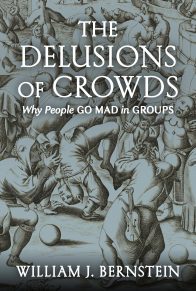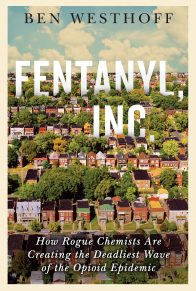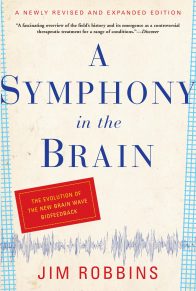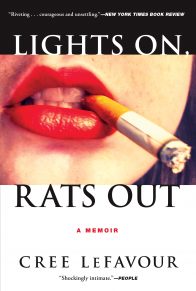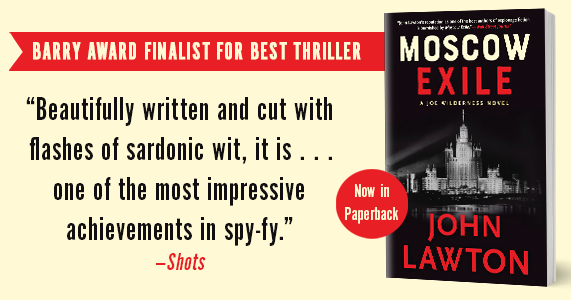This is Michael, chopping sirloin ready for the stir-fry. Typically, he is going to the trouble of preparing a good lunch: beef in hoi-sin sauce. He’s bought some beer, too. We’re drinking straight from the can. Amy, his girlfriend, sits at the kitchen table reading a magazine.
“Michael,” she says, without looking up.
Michael slides the diced beef into the wok where it sizzles in the hot oil.
“Easy, Amy. Only a twitch.” He winks at me, then drops what he is doing and strides out of the room. “Have a listen to this,” he calls over his shoulder and soon the place is awash with cascades of sound – brittle arpeggios, tumbling fragments of melody. It is very loud.
Michael returns, fingertips to temples, head tilted back. “Koto,” he says. “Japanese. Astonishing.”
From this angle the dent in his head, about three inches up from the right eyebrow, is more noticeable.
Next day I’m over at Stuart’s. We sit in his stuffy front room. An ornate black clock (his early-retirement present) clings to the wall like a huge fly. As I struggle with milky tea, Stuart locks me in his gaze. He is about to say something, but doesn’t. It is a long pause. Eventually he speaks.
“I don’t love you any more, do I, love?”
The words are intended for his wife, Helen, who sits beside him. “No, love,” she replies. ‘so you say.”
There is silence again, except for the tick of the insectoid clock. The dent in Stuart’s head is above the left eyebrow. Michael had climbed a tree to retrieve an entangled kite. He indent have bothered because the wind gusted and the kite drifted down of its own accord, but he was high up by then. He was calling something to Amy, but she couldn’t make it out. Her dreams recall how abruptly his voice was stifled by the creak and crack of a branch, and the wind-whipped silence of the free fall as his body cleared the boughs. Concealed within thick tufts of meadow grass was a spur of rock. Amy’s dreams also record the crack of head hitting stone. That’s what wakes her.
The fall fractured Michael’s skull and released a flash flood of bleeding into the right frontal lobe. “I thought his number was up,” the surgeon told me, and had said as much to Amy as she kept vigil over Michael’s comatose body. “No point beating about the bush,” said the doctor. But, after three days and nights, Michael came back to life – with a different number.
Stuart’s twist of fate was a motorway pile-up. A bolt snapped and blasted like a bullet from the vehicle in front. It came through the windscreen, through his forehead and tore deep into the left frontal lobe.
Despite the immediate displacement of some brain matter, loss of consciousness was brief, as is sometimes the case with penetrating missile wounds. He told the paramedics he was fine and had better get home now, but they saw the brain stuff gelling his hair and put him in the ambulance. Soon the surgeons were working to extract the foreign body from the interior of Stuart’s head, a process that also meant disposing of some adjacent brain tissue. Part of Stuart went with it.
By these means, Providence has created mirror-image lesions of the brain. As a neuropsychologist, my role is to compare the consequences. Stuart now has trouble getting started.
Helen encourages him out of bed in the morning, points him in the direction of the bathroom, has his clothes ready, and gets him breakfast before going to work. She leaves him lists of things to do around the house, and magazines and puzzle books to fill the hours. But when she returns she often finds him where she left him, sitting in silence. She’ll go over and hug him and he’ll return the embrace, but it’s perfunctory.
He doesn’t love her any more. It’s the plain truth and she accepts it. Stuart is not to blame. What he feels towards Helen is what he feels towards all other people, including himself: indifference. This absence of emotion frees him to tell the truth:
“Helen, I don’t love you any more.”
Stuart can read people’s moods and motivations, but lacks the emotional charge of empathy. I ask what he feels about the little girl who was abducted and murdered last year. He knows it was a dreadful thing to happen. They should hang the murderer or chop his balls off but, no, it doesn’t make him feel anything very much. Then, he says, it’s funny but he never used to believe in capital punishment.
Michael, on the other hand, has trouble stopping. Amy has to rein him in. He’ll talk to strangers in the street, he’ll tell them they’re beautiful, or their children are, or their pets. He wants to touch. He wants to celebrate. Beggars bring a tear to his eye. He once gave a man his coat and a “10 note. People take advantage.
Michael’s empathic response is hair triggered, but more complex social calculations befuddle him. When he first came home from the rehab center his tastes were plain. Amy said he lived on fish fingers and Led Zeppelin. Michael said it was like going back in time. He’d always liked these things and now he didn’t feel he should pretend otherwise. Fine, said Amy. But she would not tolerate the porn videos. Like Stuart, Michael no longer feels the need to dissimulate.
“How do you feel in yourself, Stuart?” I ask.
“All right.”
“Are you miserable?”
“No.”
“Are you happy?”
“I don’t think so.” He turns to Helen. “Am I happy?”
Helen looks at me. I look at Stuart. The question goes round in a circle.
Michael saw me off at the front door. He was close to tears. He pulled me to him and kissed me on the cheek. For an instant I thought he was going to say he loved me.
* * *
The bald head swivels. The voice honks like a klaxon across the senior common room: “I never make mistakes.” There is a rustling of newspapers and clearing of throats.
Martin has superior intelligence – my tests confirm it, and he holds a master’s degree in mechanical engineering – but he happens to be autistic and has a problem with volume control. Is that a reason to bar him from the SCR? No. We all enjoy our coffee.
He’s been doing one of his party pieces: calendar calculation. Martin can give you the day of the week for any date you care to mention, and he’s spot on every time, seldom taking more than a couple of seconds. He’s happy to oblige and seems disappointed when I soon run out of dates I can vouch for.
“How do you do it, Martin? You didn’t even think about the last one.”
The target date was 18 March 1988 (my son’s birthday).
“Friday” was the instant response.
“That was easy,” he says, “I went to the dentist the day before.” He grins with satisfaction.
It’s hard to tell his age. The face is lined but unweathered. He’s wearing a silver puffa jacket, sta-pressed trousers at half-mast, and trainers. Forty-eight going on fourteen. That should be “trainer” in the singular. It’s on his right foot.
“I see you’re wearing odd shoes,” I say.
“Yes,” he replies. “It’s Wednesday.” I wait for further explanation, but none is forthcoming.
When I first saw Martin, for clinical assessments, he turned up with his parents and they’d put him in a suit. His shoes were polished, and matched. He hardly said a word. Today, in his casual attire, he is voluble. Before long, inevitably, he drops into the groove of his special interests. There are several. One is the Beatles. He knows the recording and release dates of every record. Another is the railways. He has memorized the regional timetable, of course, but what really fascinates him is the movement of coal freight wagons. Then there is astronomy, which, currently, is his main preoccupation.
“Do you know how many stars there are in the universe?” he asks. “Ten to the power of twenty-two.”
I make a little blowing sound and shake my head. He looks pleased.
“Actually,” I say, “I read somewhere that if you think of each star as a grain of sand it would take all the beaches and deserts on the planet to match the number of stars in the universe.” I thought this would impress him, but he ignores me. He becomes agitated, starts rocking back and forth on the edge of his seat. When he stops he says, “I don’t think so.”
I ask him if he thinks there is intelligent life out there among all those grains of sand. He looks puzzled and I realize he’s taken the question literally, so I clarify. Again, the grin.
“Yes,” he says, “there is.” The smile is sustained. It is evidently a consoling thought.
Beth joins us. She’s one of our research assistants. It’s time to go to the lab for the testing session. Martin’s face lights up. He has taken a shine to Beth.
“And what have you been up to?” she asks him.
“I’ve been masturbating quite a lot,” he replies, as if through a tannoy. I press mouth against knuckles to block the laughter. It’s no good. I snort and cough.
“Excuse me,” I say and cough again for good measure. It’s unprofessional, I know, but he cracks me up. I’m only human. I’m not trying to make Martin look ridiculous. He is ridiculous. Look at him in his daft clothes, booming on about masturbation and coal freight wagons and the number of stars in the universe. It’s undeniable. And I reckon it’s a snub if you don’t acknowledge his absurdity. If you are to engage with Martin you must, to some extent, enter his world.
“Martin,” I say. “This is funny. Do you mind if I laugh?”
“No,” he says. “Please laugh.”
But, given permission, I find the humour soon dissolves, and I’m left sitting red-faced with tears on my cheeks and everyone looking at me instead of him. I even find myself pondering Martin’s confident assertion of the existence of extraterrestrial life. We are alone in the universe or we are not, I think. Either way, how astonishing. We grin at each other.
His head is abnormally large, as is the brain that fills it. My colleagues and I have taken measurements. We are profiling his cognitive strengths and limitations and setting these against detailed magnetic resonance observations of his brain. He is an enthusiastic research participant and has come to see himself as a neuro-engineering problem.
He has a theory. In his view autism is all about flow dynamics. Most of the time his thought processes are stuck in the left hemisphere of his brain. Consequently, his thinking is rigid, categorical, and analytic. If he could unblock the channel of the corpus callosum, which links the two sides, then the streams of the left and right brain would merge and he would be whole. Ordinary consciousness would flourish. This happens sometimes, he believes. For brief periods the world takes on a different appearance. He is more relaxed and it is less of an effort to connect with people. This is where masturbation comes in: orgasm detonates a dam-busting explosion in the right hemisphere.
As Beth sees Martin to the door, I catch a fragment of their conversation.
“But if your boyfriend leaves you . . .” he says.
“We’ll see,” says Beth.
Martin’s grin has an unworldly beauty.
* * *
It was her seventh birthday, Ellie’s father is telling me, a clear morning in April. They had stopped to chat to a neighbour. Ellie was losing patience. She wanted to ride her new bicycle. He can see it now, blue and silver chrome, dazzling in the sunlight. And then, ‘she was lying in the middle of the road, dead still. It was like the world had stopped, except for me. When I got close the rest caught up; the screech of tires, the bicycle scraping across the road. Someone said, “Oh my good Lord!””
His mind held a contradiction as he looked down on his daughter’s body: She’s not badly injured and, at the same time, She’s dead. Neither was the case. Not the latter because, of course, she is here, a young woman now, squeezing his elbow; and not the former. Her arms were grazed, nothing serious, and her face was unblemished. But what her father could not see was the fractured parietal bone and the slow seepage of blood into the right hemisphere of Ellie’s brain.
It would be a week before she opened her eyes. But she was not dead. And through the tunnel of intensive care – she in coma, he consciousness flayed – Elle’s father found the strength not to pray. His prayerless vigil was rewarded. Ellie recovered and, months later, returned to school. He dropped her off at the gate and says he blubbered so much on the drive to work he had to stop the car. Joy can be so profound it borders on grief.
Ellie never regained the full strength of her left arm and leg, and she tired easily, but it didn’t stop her joining in with the other children. She struggled to concentrate and keep pace in some lessons, but that was to be expected. No one pushed her; she pushed herself. She found a talent for languages and is now preparing to go to university. So what’s the problem?
“Parallel parking,” says Ellie, “and overtaking.”
She has difficulty judging speeds and distances. She’s twice failed the driving test. Is it anything to do with her brain injury and, if so, can I help?
I finish my assessments at the next appointment. Ellie has worked hard at tests of spatial awareness, motor co-ordination, concentration, and reaction time. The results show problems consistent with her brain injury. She senses this and, with a kind of desperation, offers to take me for a drive. I accept. ‘do you want me to come?” asks her father.
“No,” I tell him, “go and have a cup of tea.”
At first Ellie seems unsure where the car is parked. It’s an old Citro’n, the colour of tomato soup.
“Where shall I go?” she says.
“Anywhere. Just drive around. Go left here, then next right.”
And so we go, me giving directions. I have to admit she’s pretty good. Ten minutes into the drive nothing untoward has happened and I’m beginning to question the value of my tests. There’s no doubt she had problems, but here we are in the real world and she’s doing fine.
Ellie has steered the car into the middle of the road ready to turn across the oncoming traffic back into the hospital car park.
The indicator clicks as we wait. It’s a comforting sound. Tick, tick, tick. Almost hypnotic. There’s a steady flow of traffic, so Ellie waits. Tick, tick, tick. Then a gap; nothing for fifty yards, space enough to get across. But we don’t move. Tick, tick, tick. Another line of traffic draws towards us, headed by a white removals van with splashed across the front. Tick, tick, tick. The image of the van now filling my retina and flashing into my brain takes the quick-and-dirty route via the thalamus and straight to the security monitors of the amygdala, deep in the temporal lobe. Action stations! No need to trouble the higher cortical centers just yet, because something has impelled Ellie to turn across the traffic and we are going to hit the van. Conscious deliberation would be a hindrance. This is basic survival. My arms fly up and my head jerks sideways. The amygdala screams instructions to the brain stem, signaling the release of chemicals into the bloodstream and, through a clatter of synaptic activity, galvanizing the autonomic nervous system. This is red alert!
Then I become aware of the pig squeal of tires – the van’s, not ours. My cortex is coming back on-line; reflective consciousness restores itself. We roll serenely on and I glance back to see the van pulling away. Ellie remains unperturbed.
We are back in my office. “It was a close call,” I say.
“Oh?”
“I thought that van was going to hit us.”
“What van?”
I tell her that we could arrange for a more advanced assessment of her driving skills, and that she is obliged to inform the driving license authority of her condition.
“I already have,” she says.
But I can’t encourage her to drive. I see a damaged brain encased in a tonne of metal cruising down the motorway, through rush-hour traffic, through residential areas where children are riding their birthday bicycles. The damage is beyond repair. “I came to you for help,” says Ellie. Her father gives me an empty “Thank you” as they leave.
A few months later I get a call from Ellie. She has taken her driving test for a third time and passed. “I thought you’d like to know,” she says.
I picture her father standing beside her. What’s that on his face? Absolution?
* * *
Mrs. O’Grady is showing me photographs. There are three albums opened out on the coffee table. There she is at Katie’s wedding; small, nervous, and neat in a pale green suit. Two months on, there she is at Stephanie’s. Beige this time. “I feel guilty,” she confides. “I still haven’t told Steph. Do you think I should?”
“Yes,” I say. ‘she’ll understand.”
I decline a second cup of coffee and gather my stuff to leave, but I’m not going yet because Mrs. O’Grady has grabbed my arm. She leads me to a corner of the room and stands back with an air of curiosity. She stares, steps forward, stands back again. She can’t make me out. The facial musculature shapes apprehension, building to dread. Then she goes blank.
She walks to the other side of the room, smacking her lips and tugging her collar. I follow her to the kitchen where she stands by the stove picking her nose. Then she fills the kettle, but doesn’t switch it on. She fetches mugs from the cupboard and places them on a tray. From time to time she seems to be aware that there is someone else in the room. She looks at me, but I am too much to fathom. I feel semi-transparent. I speak, but there is no response. Am I really here?
She fills the mugs with cold water from the kettle and carries the tray into the living room. We sit in silence. I’m thankful this hasn’t developed into a thrashing, foaming, full-blown fit. After a while she reaches for the third album.
“This one’s the holidays,” she says. “Tenerife.” But she knows something is wrong when she sees plain water in the mugs. Mrs. O’Grady takes brief excursions from consciousness.
These are known as automatisms, a feature of her epilepsy. The conscious mind switches off, but the bodily apparatus carries on in a more or less purposeful fashion: feeding the cat, walking round the supermarket, boarding a bus. Had she reached for the bread knife and plunged it through my heart I doubt she would be convicted of murder. The law makes provision for automatisms.
Watching Mrs. O’Grady’s unoccupied body scuttling about I thought of her as a zombie. Students of consciousness are fond of zombies. Not the Haitian living dead or shambling ghouls of the Twilight Zone, but far stranger inhabitants of the world of philosophical conjecture. These creatures look and act like ordinary people; they walk, talk, sing, laugh, and weep, have love affairs, raise families, get drunk, argue about politics. They are, in fact, like us in every way but one: they lack conscious awareness. Their brains regulate internal states of the body and control outward behaviour, but that’s all. While the rest of us move about in a bright pod of consciousness, zombies just move about. Their philosophical purpose is to crystallize the mindbody problem. Is it logically possible to subtract mental life from the working brain, in which case there would be scope for zombies (dualism)? Or are brain activity and consciousness one and the same thing (materialism)? No doubt Mrs. O’Grady would have something to say on the matter.
The trouble is, not all of her excursions are so brief; hence Mrs. O’Grady’s guilt over Stephanie’s wedding. Her memory holds no trace of the occasion. Physically she was there. You can see her in the photos. But she was not there mentally, at least not in full. It was too protracted an episode to fit the conventional scheme of an epileptic automatism. More likely her brain had settled into a stable pattern of dysfunction with low-level epileptic discharges jamming the transmission of sensory information into memory. Her awareness would have been a fragile membrane of impressions floating between “now” and “then”, but never quite connecting.
There are other circumstances in which human beings appear to act purposefully without the benefit of self-awareness. Sleepwalking is a good example. I was in the Combined Cadet Force in my teens. One night, at camp, I somnambulated through the barracks and mistook the NCOs’ quarters for the lavatory. I shuffled in and urinated over one of the officers as he slept.
Unfortunately, the following morning I was fully conscious. How convenient it would be sometimes to turn off consciousness and carry on with ordinary behaviour.
Imagine flicking a switch on difficult days and flipping into oblivion, knowing that your body will continue going about its normal business. No one would notice. A pre-programmed wake-up call would return you to sentience in time for a film or the football. Controlled automatism might be preferable to periods of physical or emotional discomfort, or sheer boredom. If everyone had a consciousness switch then the world, most of the time, would be teeming with zombies. Perhaps it already is. What troubles Mrs. O’Grady is that she remembers one wedding and not the other: Katie’s, but not Steph’s. It seems unfair. In truth, she says, it’s not so much that she can’t remember as the feeling that she wasn’t actually there. Like she didn’t bother to turn up. I’m not going to debate it with her and, for her own peace of mind, I think she should talk it through with her daughters. But if they couldn’t tell, what difference does it make?
Later, lying in bed, I confess to my wife that I am a zombie. We had a malfunction with the transcranial magnetic stimulator. It zapped my awareness module. I thought she should know, but best not break it to the kids just yet. I say I hope it won’t change the way she feels about me. She is already asleep.
©2003 by Paul Broks. Reprinted with permission from Grove Atlantic, Inc. All rights reserved.





